What is an abscessed tooth?
A dental abscess is a pocket of pus from a bacterial infection. Abscesses can occur in different areas around the teeth for multiple reasons and they affect the involved tooth. Abscesses may also affect the surrounding bone and sometimes adjacent teeth.
There are three types of tooth infections
- Gingival: This infection affects the gums. It doesn’t often impact the tooth or supporting structures.
- Periapical: This infection begins at the tip of the root. This happens as a result of bacteria which spreads from the inside of the tooth to the pulp through a fracture or possibly a cavity. The pulp is at the centre of the tooth and contains nerves and blood vessels. When bacteria attack the pulp, they may advance to the tip of the tooth’s root causing the infection to take hold, and spread to the bone which may result in an abscess.
- Periodontal: This infection initiates in the bone and tissues that support the tooth. A periodontal abscess may result from periodontitis or gum disease and is more frequent with adults.
Who is most at risk for tooth infections?
- Smokers – Smokers are significantly more likely than non-smokers to have tooth infections
- People affected by dry mouth – Saliva can help protect against infection, hydration is important!
- Those who practice poor dental hygiene – Brushing, flossing, and regular checkups greatly reduce bacterial buildup.
- Anyone with a weakened immune system – Diseases or medications can lower your immune response, making it harder to fight off germs.

What Causes A Tooth Abscess?
Openings caused by a number of reasons can allow bacteria to attack and infect the tooth. These causes may include:
- Severe tooth decay – Tooth decay is the breakdown of the hard surfaces on your tooth. Decay happens when bacteria digest sugars in your food and drink, this creates acid that will attack your enamel.
- Broken, chipped or cracked teeth – Any opening may allow bacteria to enter the tooth which will eventually attack the pulp.
- Gum disease (periodontitis): This is an infection and inflammation which occurs in the tissues around the teeth. As periodontitis progresses, the bacteria attack to deeper tissues.
What Are The Symptoms Of A Tooth Infection?
If your tooth is infected, your pain may be:
- Gnawing or throbbing.
- Sharp or shooting.
- Continuous or only when chewing.
- Radiating to the jawbone, neck or ear.
Other oral symptoms of infection include:
- Tooth sensitivity to hot or cold temperatures.
- Bitter taste in the mouth.
- Foul-smelling breath.
- Gum redness and swelling.
- Loosening of the tooth.
- Swollen area in the upper or lower jaw.
- Open, draining sore on the side of the gum.
You may experience more generalized symptoms like:
- Fever
- Swollen neck glands
- General discomfort, uneasiness or ill feeling
- Don’t delay: See a dental professional as soon as possible.
- Don’t stop your oral hygiene routine: Continue to brush and floss.
- Don’t be fooled if your dental abscess stops hurting: Pain associated with a dental abscess may go away if the tooth root has died.
- If left untreated, the abscess may spread to your brain or spinal cord. It should be treated immediately, please seek medical attention from a dentist.
It can take 1-2 weeks after treatment, but it depends entirely on the person’s own response to the treatment.
Antibiotics will not cure an abscessed tooth. The best thing to do is always talk to a dentist.
You should avoid the following:
- Hard foods
- Chewey foods
- Sugary foods like candy
- Food or drink that is overly hot, or cold.


